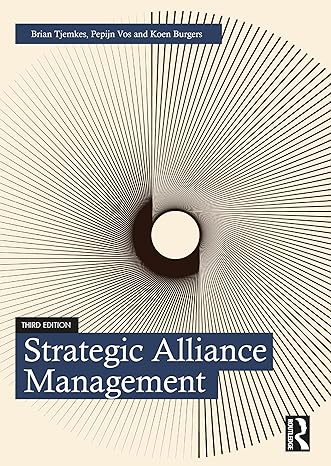Reckitt Benckiser Group (RB) is a British multinational consumer goods company headquartered in Slough, England. It is
Question:
Reckitt Benckiser Group (RB) is a British multinational consumer goods company headquartered in Slough, England. It is a producer of health, hygiene and home products. It was formed in 1999 by the merger of the UK-based Reckitt & Colman plc and the Netherlands-based Benckiser NV. RB’s brands are segmented into Health, Hygiene and Home brands. Examples are Neurofen, Strepsils, Gaviscon and Durex (Health); Finish, Dettol, Lysol, Veet, Harpic and Cillit Bang (Hygiene); Vanish, Woolite, Calgon and Airwick (Home). RB has operations in around 60 countries, and its products are sold in almost 200 countries. RB is the global market leader in automatic dishwashing detergents through the brand Finish.
One of the most time-consuming household chores is washing dirty dishes by hand. To make this process more convenient, the appliance industry introduced automatic Coopetition alliances 251 dishwashers in the 1960s. Instead of washing dirty dishes by hand, consumers could now put them in the dishwasher, add chemical products (dishwashing detergent, rinse aid and salt) and the machine would clean and dry the dishes. Furthermore, a dishwasher consumes less water and energy than hand-washing. However, the household adaption of automatic dishwashers was signifcantly slower than the household adaption rate of washing machines. Even today, only two out of ten households globally wash dishes in a dishwasher.
Consequently, RB decided to form ‘Automatic Dishwashing Market Creation Alliances’
with leading automatic dishwasher manufacturers in order to set up consumer education marketing programmes. The objective of those programmes was to make consumers aware of the automatic dishwasher category and to create the desirability of purchasing an automatic dishwasher. The content of the marketing programmes was intended to communicate the emotional and rational benefts of automatic dishwashing compared to manual dishwashing, such as more time for yourself and your family, better cleaning results and less water and energy use. The programmes started in Western Europe in the 1970s and were then extended in the next decades to Southern Europe, Eastern Europe, Turkey, Russia, Middle East, South Africa, Brazil, China and other developing markets.
RB initially collaborated with two rival manufacturers: BSH and Electrolux. As the programmes expanded geographically, the number of participating rival manufacturers increased, and companies like Arcelik, Whirlpool, LG, Haier and Samsung joined the market creation programmes as well. The alliance partner selection criteria were based on strategic and cultural ft; for example, the strategic intention of the partners to invest in creating the automatic dishwasher category and the capability of the partners to work together in a strategic alliance.
Questions 1 Explain why the household adaption rate of washing machines was faster than the household adaption rate of automatic dishwashers.
2 Explain why the described alliances can be termed ‘star-type alliances’. Consider that the participating competitor dishwasher manufacturers are not directly engaged in a cooperative arrangement.
3 Explain where you see the main challenges in the execution of the described market creation alliances.
Step by Step Answer:

Strategic Alliance Management
ISBN: 978-1032119250
3rd Edition
Authors: Brian Tjemkes ,Pepijn Vos ,Koen Burgers






